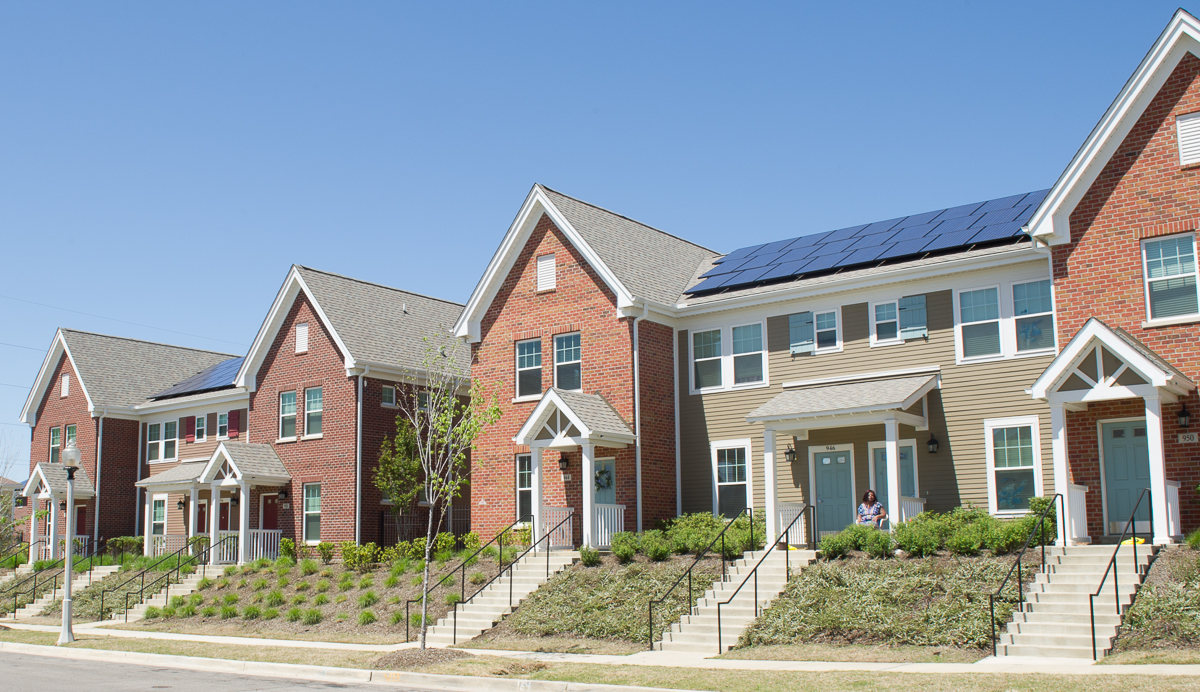In the dynamic world of real estate, property management is pivotal in ensuring that properties are not just bricks and mortar but thriving assets that generate consistent revenue and provide a safe and pleasant environment for occupants.
This comprehensive guide explores the key aspects of property management, from its fundamental principles to the latest trends shaping the industry.
- What is Property Management
- Property Manager Responsibilities
- Services Offered by Property Management Companies
- Tips for Successful Property Management
- Challenges in Property Management
- Evolving Trends in Property Management
- The Future of Property Management: Trends to Watch
- Frequently Asked Questions
- Conclusion
What is Property Management

Property management is a multifaceted discipline that involves a deep understanding of several core principles. These principles form the foundation of effective property management and are essential for maintaining and enhancing the value of real estate assets.
From maintenance and tenant relations to financial management and legal compliance, these principles serve as the building blocks of a successful property management strategy. At its core, property management revolves around the efficient and effective operation, control, and oversight of real estate assets.
Property Manager Responsibilities

The extent of a property manager’s duties is determined by the terms outlined in their contract with the landlord. While some landlords might request only rent collection services, others may entrust the property manager with comprehensive property oversight.
Below, you’ll find a range of responsibilities often associated with property management:
1. Maintenance and Repairs
One of the fundamental aspects of property management is ensuring that properties are well-maintained. Regular inspections, repairs, and maintenance are crucial to prevent issues from escalating, reduce costs in the long run, and keep tenants satisfied.
2. Tenant Relations
Property managers act as intermediaries between property owners and tenants. They are responsible for finding and screening tenants, collecting rent, handling lease agreements, and addressing tenant concerns and disputes.
3. Financial Management
Efficient financial management is vital to the success of property management. This includes budgeting, accounting, and ensuring that property expenses are covered while maximizing profits for property owners.
4. Legal Compliance
Property managers must be well-versed in local, state, and federal laws related to property rental. This includes fair housing laws, tenant rights, and eviction procedures.
Services Offered by Property Management Companies

In this section, we’ll explore why effective communication is paramount in property management and how it contributes to building strong relationships with both property owners and tenants.
1. Building Trust and Rapport
Effective communication fosters trust and rapport between property managers, property owners, and tenants. It begins with clear, honest, and timely communication during the initial stages of tenant acquisition and continues throughout the lease term.
a. Tenant Screening and Onboarding:
Property managers establish trust by thoroughly explaining lease terms, rules, and expectations during the onboarding process, ensuring that tenants have a clear understanding of their responsibilities.
b. Rent Collection:
Transparent communication regarding rent collection procedures, due dates, and acceptable payment methods builds trust and helps ensure rent is paid promptly.
c. Maintenance Requests:
Responding promptly and effectively to maintenance requests demonstrates a commitment to tenant comfort and safety, strengthening the tenant-manager relationship.
2. Conflict Resolution
In property management, conflicts and disputes can arise. Effective communication is essential in resolving these issues swiftly and fairly, maintaining a positive living environment for tenants.
a. Tenant Concerns:
Property managers must actively listen to tenant concerns and address them in a timely and empathetic manner. Open dialogue can often lead to mutually agreeable solutions.
b. Property Owner Updates:
Property managers keep property owners informed about property conditions, maintenance, and financial matters. Transparent reporting allows property owners to make informed decisions.
3. Legal Compliance
Property managers must navigate a complex web of local, state, and federal laws, including fair housing regulations and tenant rights. Effective communication ensures that both property owners and tenants are aware of their legal obligations.
a. Lease Agreements:
Clear and concise lease agreements, communicated to tenants in advance, help prevent misunderstandings and legal disputes down the line.
b. Eviction Procedures:
In cases where eviction becomes necessary, property managers communicate the process and legal requirements to tenants, ensuring compliance with the law.
4. Tenant Retention
Effective communication is a key factor in tenant retention. Happy tenants are more likely to renew their leases, reducing turnover and vacancy rates.
a. Regular Check-Ins:
Property managers may conduct periodic check-ins with tenants to assess their satisfaction and address any concerns promptly.
b. Renewal Notices:
Clear and timely communication regarding lease renewals and any changes in terms helps tenants make informed decisions about staying in the property.
Tips for Successful Property Management

Effective communication is the cornerstone of successful property management. Property managers act as intermediaries between property owners and tenants, and their ability to maintain open, transparent, and constructive communication channels is crucial.
1. Effective Communication:
Maintain open and transparent communication with your tenants. Promptly respond to inquiries and address concerns to foster a positive landlord-tenant relationship.
2. Regular Property Maintenance:
Implement a proactive maintenance schedule to address repairs and upkeep. Regular inspections help catch problems early and preserve the property’s value.
3. Understand Local Laws:
Familiarize yourself with local and state landlord-tenant laws and regulations. Compliance is crucial to avoid legal complications.
4. Respect Tenant Privacy:
While it’s essential to address maintenance and safety concerns, respect your tenants’ privacy. Give proper notice before entering the property, as required by law.
5. Plan for Vacancies:
Be prepared for periods of vacancy. Have a strategy in place to advertise and find new tenants quickly to minimize income loss.
6. Review and Adjust Rent:
Periodically assess the local rental market and consider adjusting the rent to stay competitive and maximize income. However, be mindful of rent control regulations in your area.
Challenges in Property Management

While property management can be a rewarding endeavor, it’s not without its challenges. Property owners and managers often face a range of issues that require attention and effective solutions to ensure the smooth operation of their real estate investments.
Here are some of the common challenges in property management:
1. Tenant Turnover:
Frequent turnover can lead to increased vacancies, higher marketing costs, and added administrative tasks, such as screening new tenants and handling lease turnovers.
2. Legal and Regulatory Complexities:
Navigating complex landlord-tenant laws, fair housing regulations, and local ordinances can be challenging. Staying compliant is crucial to avoid legal complications.
3. Maintenance and Repair Issues:
Property maintenance is an ongoing task, and addressing repair issues in a timely and cost-effective manner can be a significant challenge. Neglecting maintenance can lead to costly problems down the road.
4. Vacancies and Income Loss:
Empty units mean a loss of rental income, which can strain cash flow. Filling vacancies quickly and retaining good tenants is essential for profitability.
5. Difficult Tenants:
Dealing with problematic or difficult tenants can be emotionally and administratively draining. Property managers must handle conflicts, enforce lease terms, and, in some cases, initiate eviction proceedings.
Evolving Trends in Property Management

In the ever-evolving landscape of real estate, property management is not immune to change. To excel in this field, property managers must remain adaptable and forward-thinking, embracing emerging trends that shape the industry.
In this section, we will explore the latest trends that are influencing property management practices, allowing professionals to stay ahead of the curve and optimize their management strategies.
1. Technology Integration: Efficiency through Innovation
Technology has become a driving force in property management. Property managers are increasingly turning to innovative software solutions and digital tools to streamline their operations.
These advancements not only boost efficiency but also enhance the overall tenant experience.
a. Property Management Software:
Specialized property management software simplifies tasks such as tenant screening, lease management, and rent collection. It also provides real-time insights into property performance and financials.
b. Smart Home Technology:
The integration of smart home devices, including thermostats, security systems, and locks, allows property managers to remotely monitor and control properties, improving security and energy efficiency.
c. Online Tenant Portals:
Online portals enable tenants to submit maintenance requests, pay rent electronically, and communicate with property managers conveniently.
2. Sustainability Initiatives: Going Green for a Better Tomorrow
As environmental consciousness grows, property management has increasingly focused on sustainability. Implementing eco-friendly practices not only reduces the carbon footprint but can also lead to cost savings and enhanced property value.
a. Energy-Efficient Upgrades:
Property managers are investing in energy-efficient appliances, lighting, and HVAC systems to reduce energy consumption and lower utility costs.
b. Waste Reduction Strategies:
Implementing recycling programs and reducing waste generation in properties contributes to sustainable practices.
c. Sustainable Landscaping:
Landscaping choices that prioritize native plants and water-efficient irrigation systems promote environmental sustainability.
3. Remote Property Management: Navigating the Digital Frontier
The rise of remote work and technological advancements has paved the way for remote property management. Property managers can now oversee properties from a distance, leveraging digital tools and smart technology to enhance efficiency and responsiveness.
a. Digital Property Inspections:
Property managers use digital tools for remote property inspections, identifying maintenance needs, and addressing issues promptly.
b. Security and Access Control:
Remote property management often includes advanced security systems, remote access control, and surveillance, ensuring properties remain secure even from afar.
4. Enhanced Security Measures: Safeguarding Properties and Tenants
Security is paramount in property management. Property managers are increasingly adopting advanced security measures to protect both properties and tenants.
a. Smart Security Systems:
Smart locks, surveillance cameras, and access control systems provide advanced security features, allowing for better protection and monitoring of properties.
b. Tenant Safety Education:
Property managers educate tenants on safety protocols and emergency procedures to ensure their well-being.
Staying attuned to evolving trends is imperative for property managers to excel in their roles. Technology integration, sustainability initiatives, remote property management, and enhanced security measures are all integral parts of modern property management.
By embracing these trends, property managers can enhance property value, attract and retain tenants, and meet the changing demands of the real estate industry.
The Future of Property Management: Trends to Watch

The property management landscape is continuously evolving, and staying ahead of emerging trends is crucial for success in this industry.
In this section, we’ll delve into some of the forward-looking trends that property managers should keep a close eye on. These trends have the potential to reshape the way properties are managed and how property managers deliver value to property owners and tenants alike.
1. Artificial Intelligence and Automation For Properties
Artificial intelligence (AI) and automation are poised to revolutionize property management. AI-driven algorithms can analyze vast amounts of data to optimize property performance, predict maintenance needs, and even enhance the tenant screening process.
Automation can streamline routine tasks, freeing up property managers to focus on more strategic aspects of their role.
2. Data-Driven Decision-Making
Data analytics is becoming increasingly important in property management. Property managers can leverage data to make informed decisions about property improvements, rent pricing, and tenant retention strategies. Advanced analytics tools provide insights that help maximize property value and investment returns.
3. Sustainable and Eco-Friendly Practices
Sustainability is not just a trend; it’s becoming a requirement in property management. Property managers will need to continue implementing green practices, such as energy-efficient upgrades and sustainable landscaping, to meet tenant and regulatory demands while reducing long-term operating costs.
4. Enhanced Tenant Experience
As competition in the rental market intensifies, providing an exceptional tenant experience will be a key differentiator. Property managers will focus on tenant-centric services, such as online portals for convenience, community-building activities, and responsive maintenance services.
5. Remote Property Management
Remote property management will continue to evolve, with the integration of even more advanced technology. Property managers will have access to real-time property data and enhanced security systems, enabling them to monitor and respond to property needs effectively, regardless of physical location.
6. Regulatory Changes and Compliance
The regulatory landscape in real estate is ever-changing. Property managers must stay up-to-date with evolving laws and regulations related to fair housing, rent control, and tenant rights to ensure compliance and avoid legal issues.
7. Proactive Maintenance Strategies
Property managers will shift from reactive to proactive maintenance strategies. Predictive maintenance, enabled by data analysis and smart technology, will help identify and address maintenance issues before they become major problems, reducing costs and tenant inconvenience.
Frequently Asked Questions
What are the responsibilities of a property manager?
A property manager’s responsibilities include tenant selection, rent collection, maintenance and repairs, property inspections, and ensuring legal compliance with housing laws and regulations.
How does property management benefit property owners?
Property management benefits property owners by saving them time and effort, ensuring consistent rental income, maintaining the property’s condition, and providing expertise in handling tenant issues.
What fees are associated with property management services?
Property management fees typically include a percentage of the monthly rent, leasing fees, and maintenance fees. These fees can vary based on the property management company and the services provided.
Conclusion
Property management is a multifaceted field that requires a combination of skills, from financial acumen to interpersonal communication. In an ever-changing real estate landscape, property managers play a crucial role in optimizing property value, ensuring tenant satisfaction, and adapting to emerging trends.
By staying informed and embracing technology, property management professionals can navigate the challenges and seize the opportunities that lie ahead.
In the end, property management is not just about managing properties; it’s about maximizing the potential of real estate assets for the benefit of property owners, tenants, and the community as a whole.



